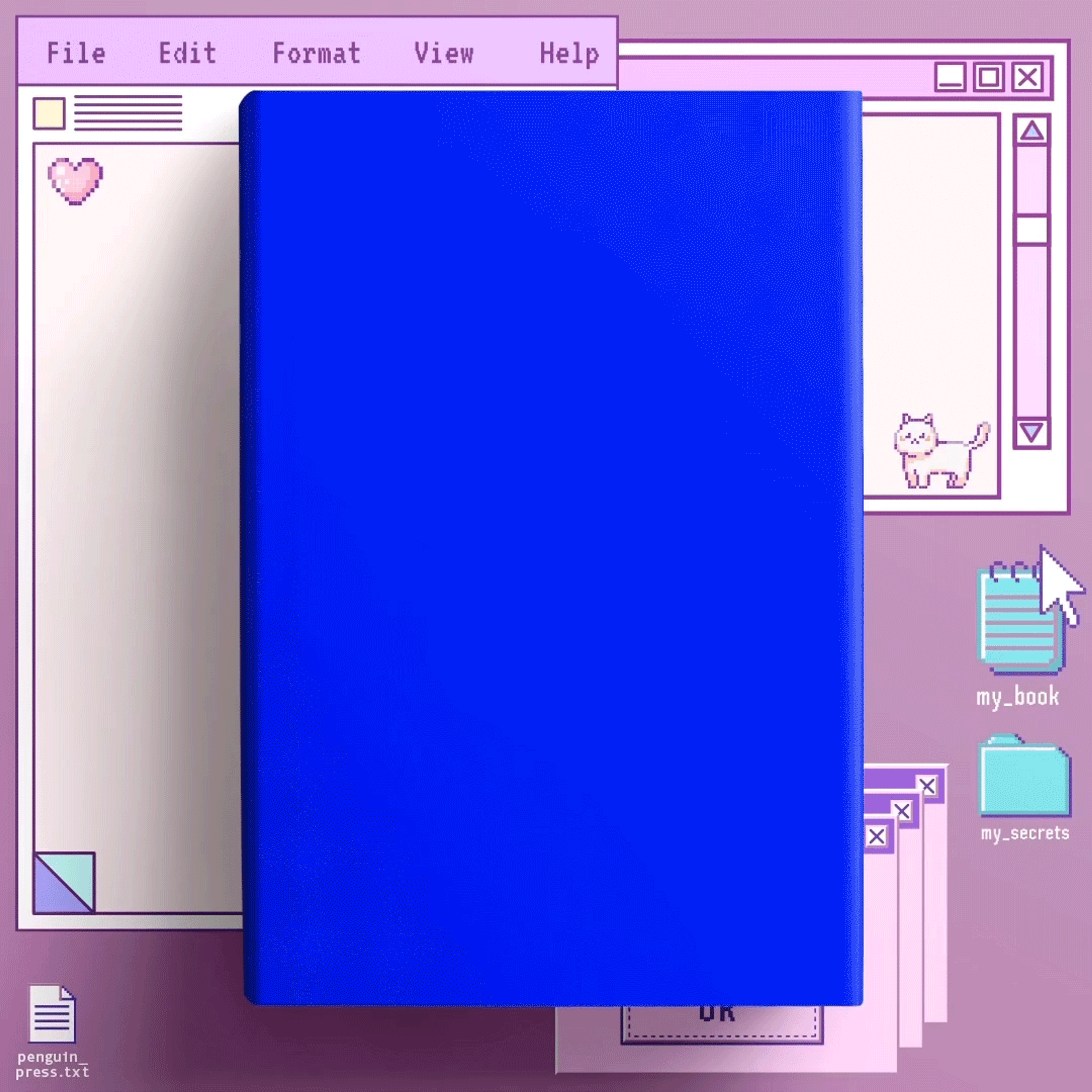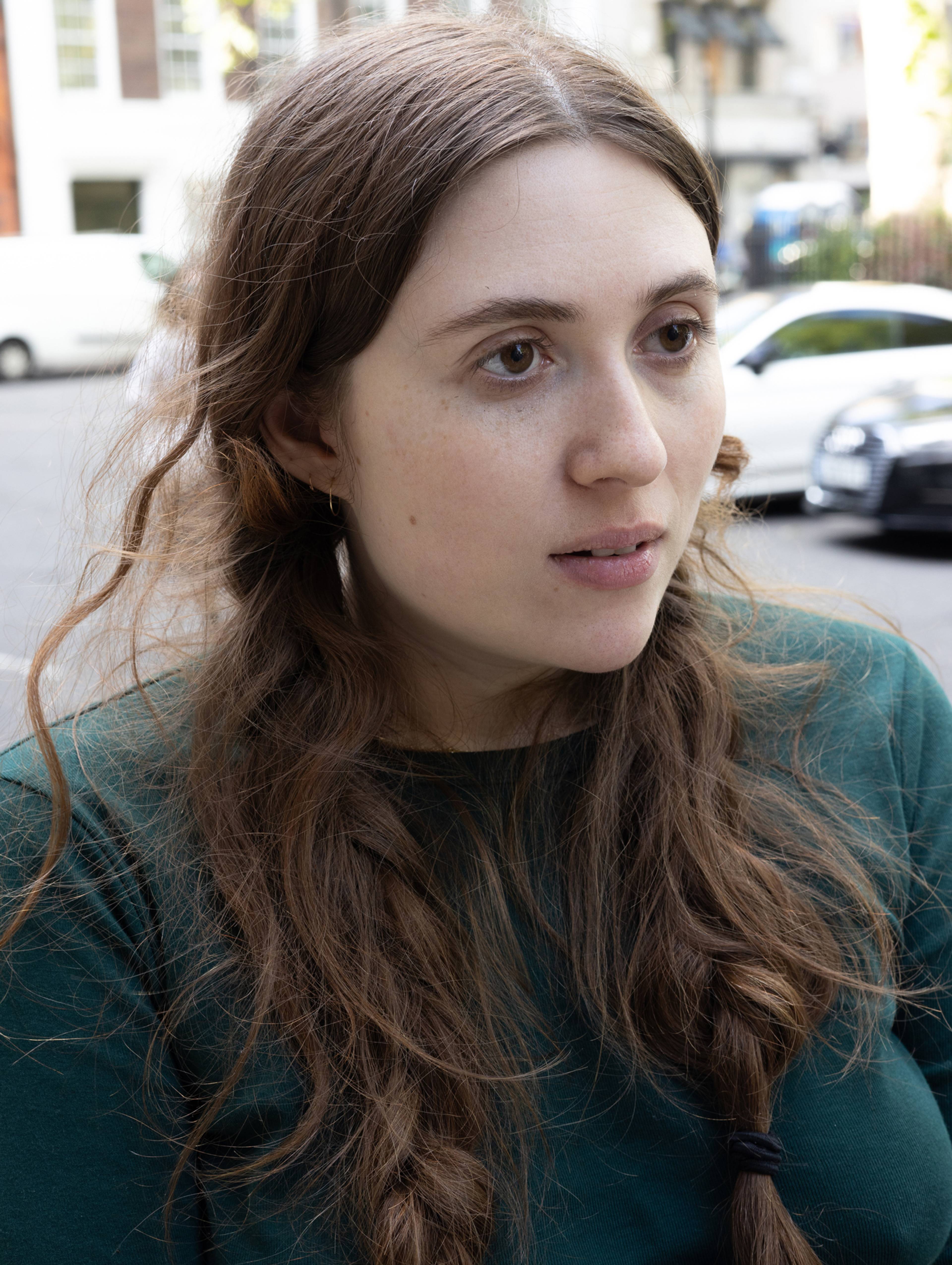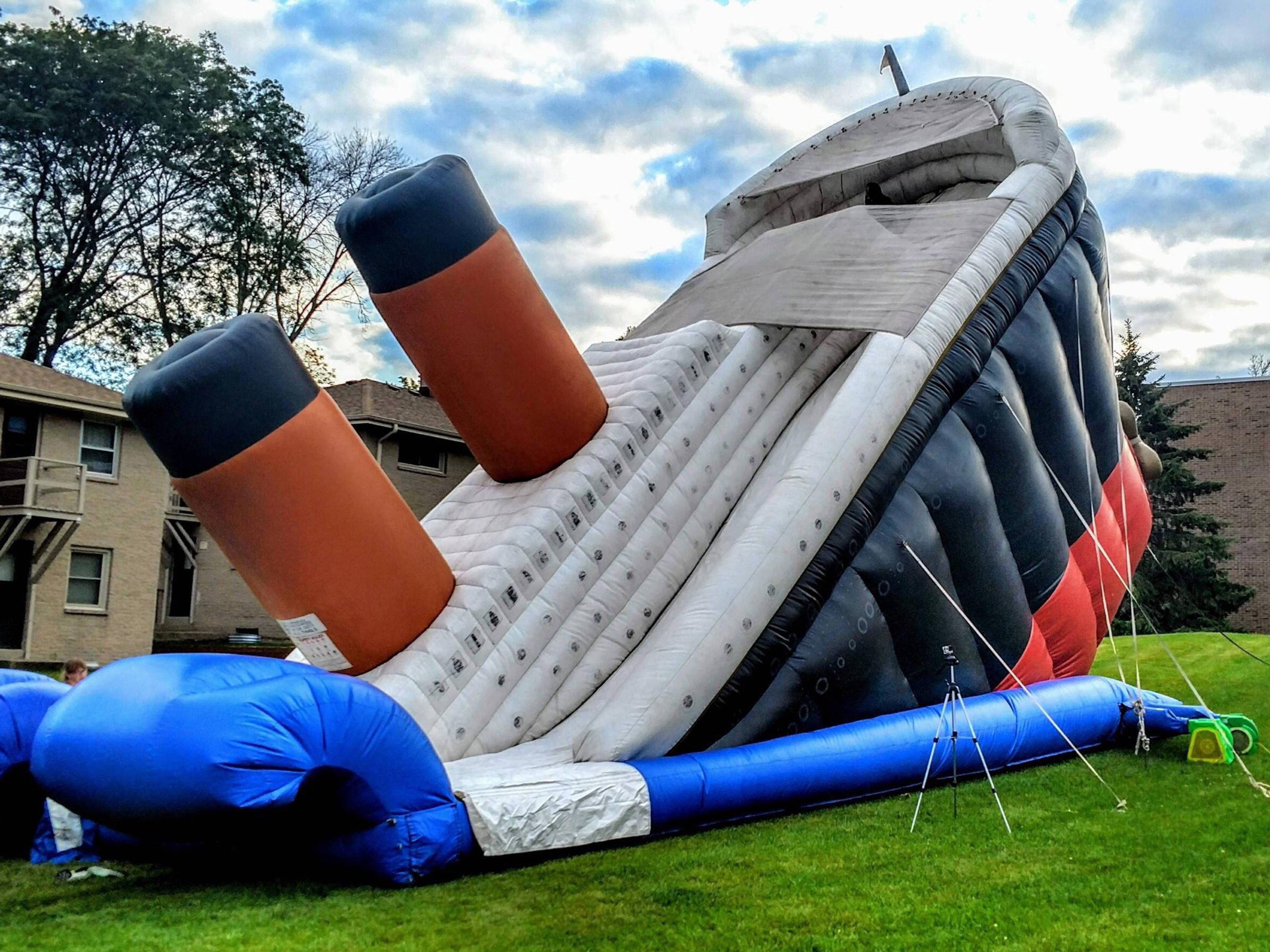The opening page of My First Book (2024), the debut story collection by Honor Levy, reads, “Monkey covering eyes Emoji.” We know this internet language, at once ironic and self-defacing, and it feels out of place in a hardcover book published by Penguin Press. Converting Twitter language into print has been done before (Man Hating Psycho [2021], by Iphgenia Baal), but this time, it’s by a “microcelebrity.”
We’ve seen the forebears of My First Book in the generational autofiction of Chris Kraus or Natasha Stagg. But there is something slightly more licentious and even pathological about Levy’s writing. My First Book takes heavily medicated prose to a new, highly surreal level. In her use of internet signifiers and extended online metaphors, Levy documents Gen-Z’s hive mind in all its chaotic splendor – here is an author who can successfully pull off using “RAWR XD” mid-sentence while criticizing the logic of #MeToo. As with Donna Tart’s A Secret History (1992) or Elif Batuman’s Either/Or (2022), Levy’s writing contains copious, sometimes esoteric references. My First Book’s language of internet subcultures and memeology is both its selling point and, to members of the X literary community, its downfall.
Levy’s first-person narrative is punctuated by loose ends, internet conspiracies, and a general cacophony of Adderall-ridden voices, which, for better or worse, simulate in the reader a feeling of being truly “schizo.” Her style originates from both a genuine desire for satire – as Levy asks, “wouldn’t it just be funny to write cultural criticism and personal essays that are just filled with lies about real culture and fake culture together” – and the writer's own, highly palpable paranoia.
Lydia Eliza Trail: Your writing style is infamously dichotomous for integrating brain-fried internet slang within extended prose. This combination has garnered you labels such as “The voice of Gen Z” as both an insult and as accolade.
Honor Levy: My friends and I used to joke about the voice of a generation. Is it picked during the generation? Is it after? Is it democratic? Is it the person who makes the most people angry? The person who most people of a generation relate to? The person who talks in slang in print? Or is it the person who is the most controversial?
Recently, a profile about me in The Cut went semi-viral and sparked a lot of online discourse. But basically, I have nothing interesting to say, like, on a meta-level, or even on a non-meta level anymore. I’m not being called “the voice of a Generation” by magazines who profile me. People are mad, so they’ll repeat it, like “voice of a generation,” “Dimes square,” “across state lines.” It's a repeatable search engine optimization thing – but it’s also, like, the idea of a voice of A generation is funny, as Hannah Horvath [from the TV series Girls] said best.
You think that you roasted me, but you just read me.
LET: People read the Cut piece, and they were pissed. People didn’t even read the book, and they were pissed. There’s a sadomasochistic need for a scene to exist, so one can chastise oneself for not being a part of said scene, whilst simultaneously shitting on it.
HL: Yeah, I mean, stop defining yourself in opposition to something. But, that being said, if you want to be in Dimes Square, just join. They let literally anyone in down there.
LET: How do you get your notes down?
HL: Google Docs. Notes app. I have a Notes app tattoo I need to get removed. You know they really said stick AND poke when they gave me that. I got it in freshman year of college – I was in a room with some cool girls. “Yeah we are doing stick and pokes!” I thought, let me get something funny … It’s not a joke. Your body isn’t a joke.
LET: Let’s talk about My First Book. I want to ask you about “Love Story” – it’s a retelling of Romeo and Juliet (1597) through the lens of a schizophrenic internet meme page. There is something about the anachronistic contrast between the medieval and the modern that is really beguiling; they are Eloise and Abelard, they are “Rawr XD, Stupid, emo, gay, Cringe.”
HL: I feel that a short story is a great thing for 10th-grade literature students to analyze for the little references. My references in “Love Story” are mad intentional. The Eloise and Abelard thing, that’s actually from The Sopranos [1999–2007].
Portrait of Honor Levy. Photo: Callum Hansen
LET: The story “Internet Girl” describes an adolescence spent navigating the extreme, oft-disturbing forums of the internet. The tone is unserious, almost naive. There’s a quote, “all at once, there are two girls and one cup and two planes hitting towers,” that I wanted to ask you about.
HL: I mean, do you remember the first time you heard of 9/11?
LET: I don’t think I heard about it until I was ten, in 2011, when the New York Times published its ten-year anniversary cover, and the images showed people who had jumped out of the buildings right before they hit the ground. It was grotesque.
HL: The first time I learned about it, I remember thinking everybody knew. I was like, oh, everyone has been thinking about this, except me.
People my age (twenty-six) remember it; they have memories of watching it on TV as it happened. I have memories from before 2001, but not of that. It would have been psychedelically traumatizing to go through that collective event. It’s weird that some people just experienced it secondhand through a screen, however many years later.
You know that phrase: it takes 100 years for something to become a bouncy house, e.g., the Titanic bouncy house. I’m pretty sure there’s already been a Twin Towers bouncy house. In “Internet Girl,” I’m interested in the image after-life of 9/11.
11-meter Titanic inflatable slide
LET: Have you ever thought about putting images in the book? You have text art, but your writing feels so vividly connected to the internet. Like, when you talk about the “Big Chungus” meme or UwU (an emoticon that resembles a cute or kawaii face) culture.
HL: Originally, I had a bunch of meme pictures and a screenshot, but, basically, they didn’t need to be there. They weren’t doing anything. What I want to do next is to work with an artist and have something very intentional about it. But, you can trace memes as intellectual property, so we couldn’t include them.
I like the idea that, if all images of memes get erased, then you could still find some in My First Book. It’s funnier if there are no pictures of memes contained within it – they stay a mystery, just described.
LET: Reading your book was like reading a language I’d only ever seen in virtual references. Sometimes IRL, but so rarely through prose. Did that writing style come naturally to you?
HL: Before fiction, I wrote plays and would go on long-ass monologues. When I started writing prose for the first time, I just knew this book couldn’t be boring – not that the opposite of boring is necessarily a good thing – but I thought had to be easy to read, at least.
LET: In “‘Z’ for Zoomer,” you define a set of key phrases; Autism, ADHD, Based, Cringe, Doomer, Edgelord, Fail, Ketamine. They’re not your average dictionary definitions; your characterizations of these words are emotional and situational. The chapter is like Raymond Williams’s Culture and Society [1958] for 2024. These words cannot be defined concretely; as you say, “Words cannot always be defined by their opposite.” Why did you include this section?
HL: ADHD is interesting. I have all the symptoms, but then again, I’ve heard it said there are different traits in girls; sitting very still, being really good at following rules, etc. Even though “Z is for Zoomer” is about how dated everything is, reading back, it’s like a rap battle or Leo Strauss’s discussion of writing; each word can mean something different and contain different layers.
My editor and I went through so many different framing devices for this story, but trying to codify generational words becomes embarrassing. They were making fun of me online, saying, “Oh, she wrote the Skibidi toilet book.” I just found my Notes app, and I actually wrote 2,000 words about Skibidi. You think that you roasted me, but you just read me.
Wouldn’t it just be funny to write cultural criticism and personal essays that are just filled with lies about real culture and fake culture together?
LET: Are the narratives in My First Book autobiographical?
HL: A lot of writers’ first books are about putting their childhood memories in, little details from their past. At the time I was conceptualizing the book, there was a real personal-essay boom – I had just become aware of cultural criticism. I thought, is this a funny form, or does a personal essay book need to be serious?
We wanted to call the book Here Lies after the Dorothy Parker book Here Lies: The Collected Stories of Dorothy Parker [1939]. I was thinking, wouldn’t it just be funny to write cultural criticism and personal essays that are just filled with lies about real culture and fake culture together?
LET: OK, we’re gonna do the photos, let’s walk to Soho Square.
HL: Oh no … I was wearing a way cuter outfit yesterday. I’m wearing business casual. I’m really beastly when I get my photo taken, so annoying. I'm naturally a little annoying, but for photos, I turn to a different level.
LET: You’re like that kid, the TikTok saint who died young and had a weird shrine made. These magazine photoshoots will be your effigy.
HL: [Singing “Dear God” by XTC] Dear God, hope you get my letter now/ I pray you can make it better now, down here; dear god/ I don’t need a big reduction on the price of beer.
___
Honor Levy’s short story collection My First Book (2024) is available for purchase from Penguin Press.




